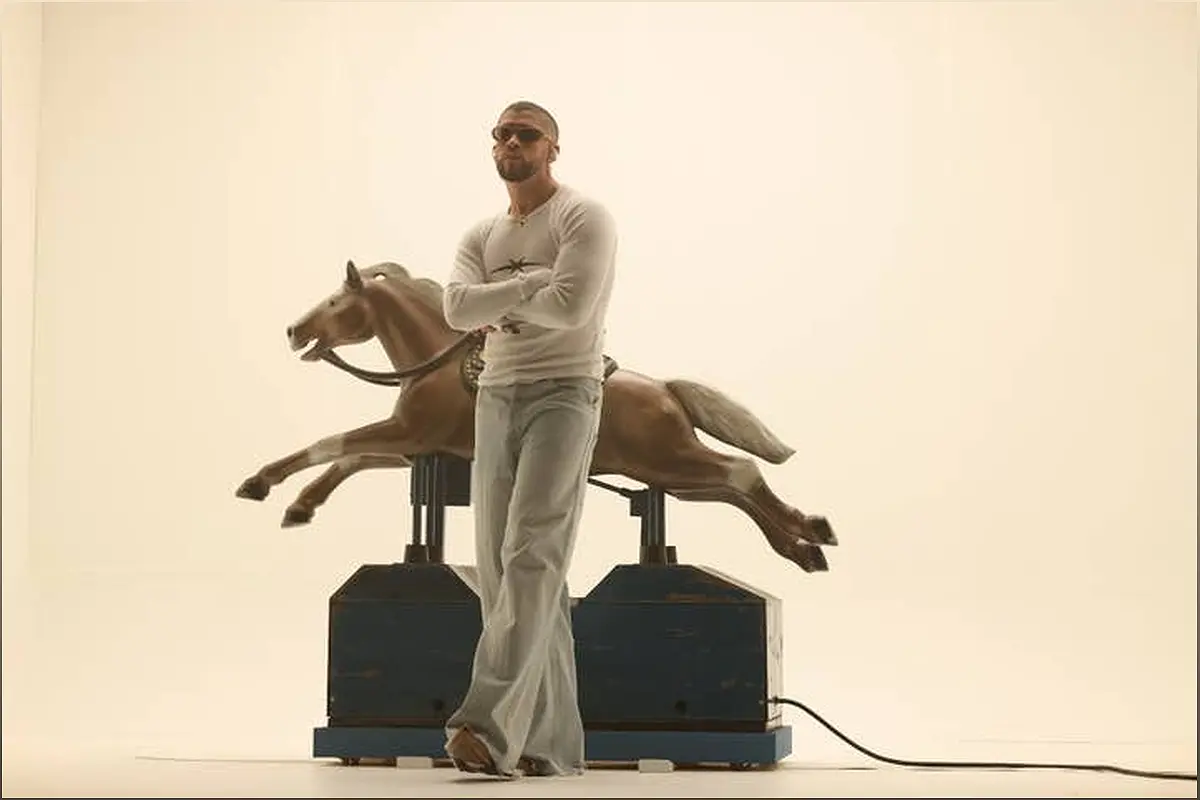In a surprising turn of events, Puerto Rican star Bad Bunny has voiced his strong opposition to an AI-generated song that has gone viral on TikTok. This clash between human artistry and artificial intelligence has sparked a heated debate. Join us as we delve into the details of this controversy and explore the implications it has on the creative landscape.
Bad Bunny's Strong Stand
Discover why Bad Bunny is taking a firm stance against an AI-generated song
Bad Bunny, the Puerto Rican star known for his unique style and powerful lyrics, has recently expressed his strong opposition to an AI-generated song that has gained viral popularity on TikTok. In a message to his fans on WhatsApp, he made it clear that he does not support the use of artificial intelligence to replicate his voice.
But what exactly sparked this clash between Bad Bunny and the AI-generated song? Let's delve deeper into the details and explore the reasons behind his strong stand.
The Controversial Track
Unraveling the mystery behind the AI-generated song that struck a nerve with Bad Bunny
While Bad Bunny did not explicitly mention the song that triggered his response, many speculate that it is a track called 'Demo #5: Nostalgia,' created by TikTok user FlowGPT. This song, featuring artificially generated vocals from Justin Bieber and Daddy Yankee, gained significant traction on the platform, amassing over 22 million views.
FlowGPT, the creator of the song, responded to Bad Bunny's critique through a video message on TikTok, offering the song rights to him under the condition of crediting the virtual producer. This exchange has sparked a heated debate about the role of AI in the music industry and the boundaries of creativity.
The Clash of Creativity
Exploring the implications of the clash between human artistry and artificial intelligence
The clash between Bad Bunny and the AI-generated song raises important questions about the intersection of human artistry and artificial intelligence. It highlights the ongoing debate about the authenticity and originality of AI-generated content.
While some argue that AI can enhance creativity and open up new possibilities, others express concerns about the potential loss of human touch and emotional depth in art. This clash serves as a reminder that technology should be used as a tool to complement human creativity rather than replace it entirely.
The Power of Human Expression
Emphasizing the unique qualities of human expression in music
Bad Bunny's strong stand against the AI-generated song highlights the power of human expression in music. His distinctive voice, raw emotions, and personal experiences have resonated with millions of fans worldwide.
Unlike AI-generated content, human artistry brings a sense of authenticity, vulnerability, and connection. It is through the unique qualities of human expression that artists like Bad Bunny are able to create music that deeply touches the hearts of listeners.
The Future of Creativity
Contemplating the evolving landscape of creativity in the age of AI
The clash between Bad Bunny and the AI-generated song raises broader questions about the future of creativity in the age of AI. As technology continues to advance, artists and creators must navigate the fine line between utilizing AI as a tool and preserving the essence of human artistry.
While AI can offer innovative possibilities and streamline certain aspects of the creative process, it is crucial to ensure that human creativity remains at the forefront. The evolving landscape calls for a thoughtful and balanced approach that embraces the benefits of technology while safeguarding the unique qualities that make human artistry truly exceptional.

